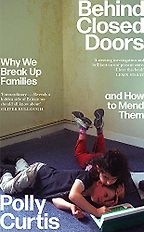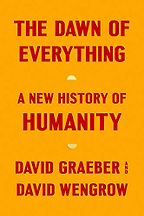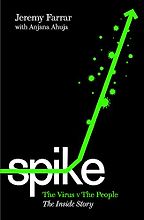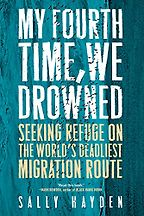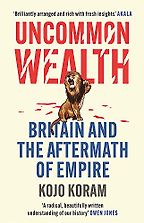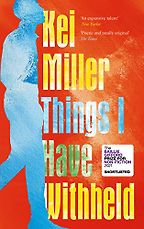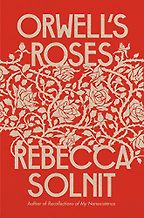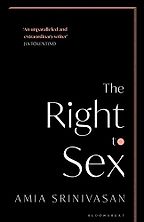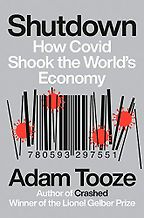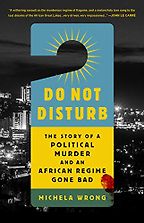The Best Politics Books of 2022, recommended by David Edgerton
Last updated: September 14, 2024
THE 2023 ORWELL PRIZE FOR POLITICAL WRITING
David Edgerton, chair of the judging panel, talks us through the ten finalists for the 2022 Orwell Prize for Political Writing, awarded for a nonfiction book. From the dawn of humanity to the Covid crisis, from a study in power to the plight of the powerless, these are books that break through the mendacities of politics and rise to the challenge of our times, he explains.
Q. What kind of books were you trying to pick out?
David Edgerton: We have a pretty broad definition of what counts as political writing. We're certainly not a prize for political science or for political journalism or instant history. So, we have on our shortlist books by poets and philosophers, archaeologists and anthropologists, scientists and lawyers, historians and journalists. What we were looking for was books that change our minds about something important, that have a certain sense of urgency, that peer beneath the surface. They're political in the sense that they want to make us think in new ways or draw attention to things that are perhaps not obvious.
We're also very definitely the Orwell Prize for Political Writing. We're not interested in apologias, or clichéd political positioning. We're interested in work that gets through the mendacities of politics, that rises to the challenge of our times. To reverse a cliché, the need now is not to speak truth to power but to tell the truth about power. So, while we think of political writing as a very broad category, what we're looking for is wonderfully written, insightful and unusual books. We think the best political writing surprises us.
These are all wonderful, wonderful books:
Behind Closed Doors: Why We Break Up Families and How to Mend Them
by Polly Curtis
“Behind Closed Doors uncovers the grim realities of children being taken away from parents in Britain today. This is a story that is actually very difficult to get at because of legal restrictions on what you can report from family courts. The book uncovers a profoundly disfunctional system in which the state is prepared to spend money on taking children away from their parents, but not prepared to spend money on helping parents to look after their children properly. It is an oppressive state, no longer trusted by citizens, and one incapable of navigating the multiple complexities of poverty, gender, and race. The book is also an extraordinary study of the way in which class, race and gender interact in profoundly negative ways.
It’s a wonderful example of very long-form investigative reporting into something that people either don’t want investigated or by its nature is difficult to investigate. It’s a very subtle examination of what is a very, very difficult issue. This isn’t a book that is coming up with easy answers: it’s a book that really explains why the issue is so intractable.”
The Dawn of Everything: A New History of Humanity
by David Graeber & David Wengrow
“This book is extraordinarily ambitious. It genuinely is a new history of humanity. One of the most notable things about it is that it wants to free up our political imaginations from being trapped in very particular stories about our prehistorical origins. It is really a very powerful critique of what you might call evolutionary “Just So Stories” about the human fall from grace with the rise of agriculture and stage theories of history more generally. The authors want to say that the human past was much more varied, much more open than archaeologists, anthropologists, political sociologists and philosophers have wanted us to believe. It’s a celebration of human freedom and possibility, based on a reexamination of prehistory, opening up the past to make new futures possible.”
Spike: The Virus vs. The People - the Inside Story
by Jeremy Farrar & with Anjana Ahuja
“The politics of science is one of those topics that tends to be dealt with in clichés, often self-serving clichés: truth versus lies, reason versus magic, etc. But this is an exceptional account of the politics of science which deals with the messy realities of scientific diplomacy and scientific politics. It’s a very rare, frank account by a scientist about the realities of science-state relations, of science-policy relations.
It’s concerned with Covid, with the World Health Organization, with China, and above all British politics and Covid. One of the things it exposes in relation to the UK is the systemic mediocrity of British government, with very, very rare exceptions which are celebrated. This mediocrity led, according to this book, to tens of thousands of unnecessary deaths. It is a serious intervention in our understanding of the politics of Covid, as well the epidemiology, the science, the vaccines and so on.”
My Fourth Time, We Drowned
by Sally Hayden
🏆 A Five Books Book of the Year
🏆 Winner of the 2022 Orwell Prize for Political Writing
“The subtitle is ‘seeking refuge on the world’s deadliest migration route’—that being the route from North Africa, across the Mediterranean, to Europe. All the books on the shortlist have a topicality and the ways in which they are topical are very varied and interesting. This is a book about events that are unfolding right now, as we’re speaking. We know they’re happening, but somehow we manage to push them away and not think about them. But migration is one of the huge issues of our time and this book really makes you feel it.” Read more...
The Best Nonfiction Books: The 2022 Baillie Gifford Prize Shortlist
Caroline Sanderson, Journalist
Uncommon Wealth: Britain and the Aftermath of Empire
by Kojo Koram
“Uncommon Wealth is a very powerful reminder that the legacies of the British imperial and global pasts are not merely cultural but also, though less obviously, political economic. The overall argument is that the British Empire had an important role in creating a kind of globalized capitalism which was profoundly undemocratic and destructive of national development of not only the United Kingdom’s former colonies, but more generally too. It essentially links what happened in the UK in the recent past—for example, privatization and outsourcing, the offshoring of finance to tax havens—to policies that were pioneered for decolonised parts of the world. The argument is that the UK today is living under a financial political regime long known to many of its former colonies.”
Things I Have Withheld
by Kei Miller
“This is a series of beautifully written essays by a poet. They say in a few words what whole books try to say. The book is a meditation on identity, on belonging, on the pain of not belonging, on the way in which communities are imagined and overlap and don’t overlap with each other. It’s also a study of the impact and nature of violence, especially racial violence. It’s about what’s said and what’s unsaid, when it is possible to talk about race, but not racism, and what the implications of not saying things and saying things are for our understanding. It focuses on the experience of being black in Jamaica, Africa, the US and the UK, and on the particular specificities of being black, but it speaks to everybody’s experience, everybody’s history, in extraordinary, limpid prose.”
Orwell's Roses
by Rebecca Solnit
“Orwell’s Roses says something fresh about George Orwell. It discovers Orwell as gardener, as the grower of fruit and vegetables as well as roses. It is also about Orwell’s family and its engagement with slavery and sugar in the Caribbean, and opium and imperialism in India. The book also deals with Orwell’s interest in the politics of genetics and his engagement with the politics of science in the Soviet Union and, indeed, in the UK.
But from there we get a much, much broader story about Orwell as an optimist, as somebody who’s concerned with aspects of life that are often hidden or don’t come to the surface, and a broader discussion of pleasure and nature and their place in the politics of the left. One particular theme concerns production and nature, following Orwell into the study of work, into the hidden worlds where things are made, including roses in Colombia, the conditions of the workers, the factory-like sheds where refrigerated roses are prepared for air freighting to the United States and Europe.”
The Right to Sex: Feminism in the Twenty-First Century
by Amia Srinivasan
“The Right to Sex is a collection of philosophical essays on sex, including reflections on teaching clever undergraduates about the politics of sex. Inquisitive and subtle, it is in part a recovery of themes characteristic of older feminisms. It is a powerful example of the need to think clearly about the complex relations of politics of gender to class and race. It shows just how wrong it is to isolate just one of those modes of analysis. What issues lie behind the incel phenomenon, claims of false accusations, questions of consent, and sex with students are some of the subjects this book illuminates in ways which surprise and challenge.”
Shutdown: How Covid Shook the World's Economy
by Adam Tooze
“Shutdown is a study by an economic historian of the extraordinary financial, economic and political response of governments around the world to Covid. It is a study of the significance of 2020 from China to Trump, in what was potentially a very much greater economic as well as medical crisis than it turned out to be. It is a counter to the view that Covid was going to push the world in a more progressive direction. It compares the interventions with those occasioned by the great financial crisis of 2008. It asks itself a powerful question to which we don’t yet have an answer: why was it that governments were able to spend trillions on supporting economies—everything from banks to people’s salaries—but were not prepared to spend even a fraction of this on ensuring that the whole world was vaccinated? Why, it asks with an eye to the coming climate crisis, are some major interventions possible, and others not? It is an indispensable guide to thinking about the crises of our time.”
Do Not Disturb: The Story of a Political Murder and an African Regime Gone Bad
by Michela Wrong
“Do Not Disturb is a study of power. It’s about how it is exercised by a very particular group of people, led by Paul Kagame, in Rwanda. It’s about the Tutsis who were exiled in Uganda and then invaded Rwanda at the time of the Tutsi massacres and took over the country. She tells the story of how these extraordinarily able politicians turned on themselves, killing opponents both Hutu and Tutsi, and yet, at the same time, remain the darlings of the international media, international donors, and Western powers more generally.
She tells much of the story through the life and actions of the intelligence chief of Rwanda for many years, who was murdered by the Kagame regime in a hotel room in South Africa. It’s a remarkable study of systematic mendacity in politics and of the exercise of power in general so that although it’s closely tied to the particular case of Rwanda, it is also very much a story of modern global politics. It is a study in repression, of the nature of secret services. It is also a study of multiple differentiations and how they affect politics: ethnic differences, those between pastoralists and farmers, Protestants and Catholics, anglophones and francophones, and the politics of the left and national liberation movements.
It’s also relevant now because we have a British government program of sending migrants to Rwanda. The Kagame regime is essentially going to make money out of taking on responsibility for these migrants.”
